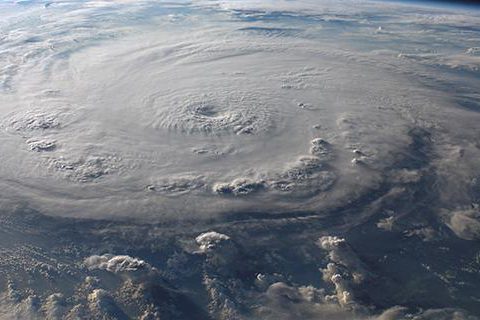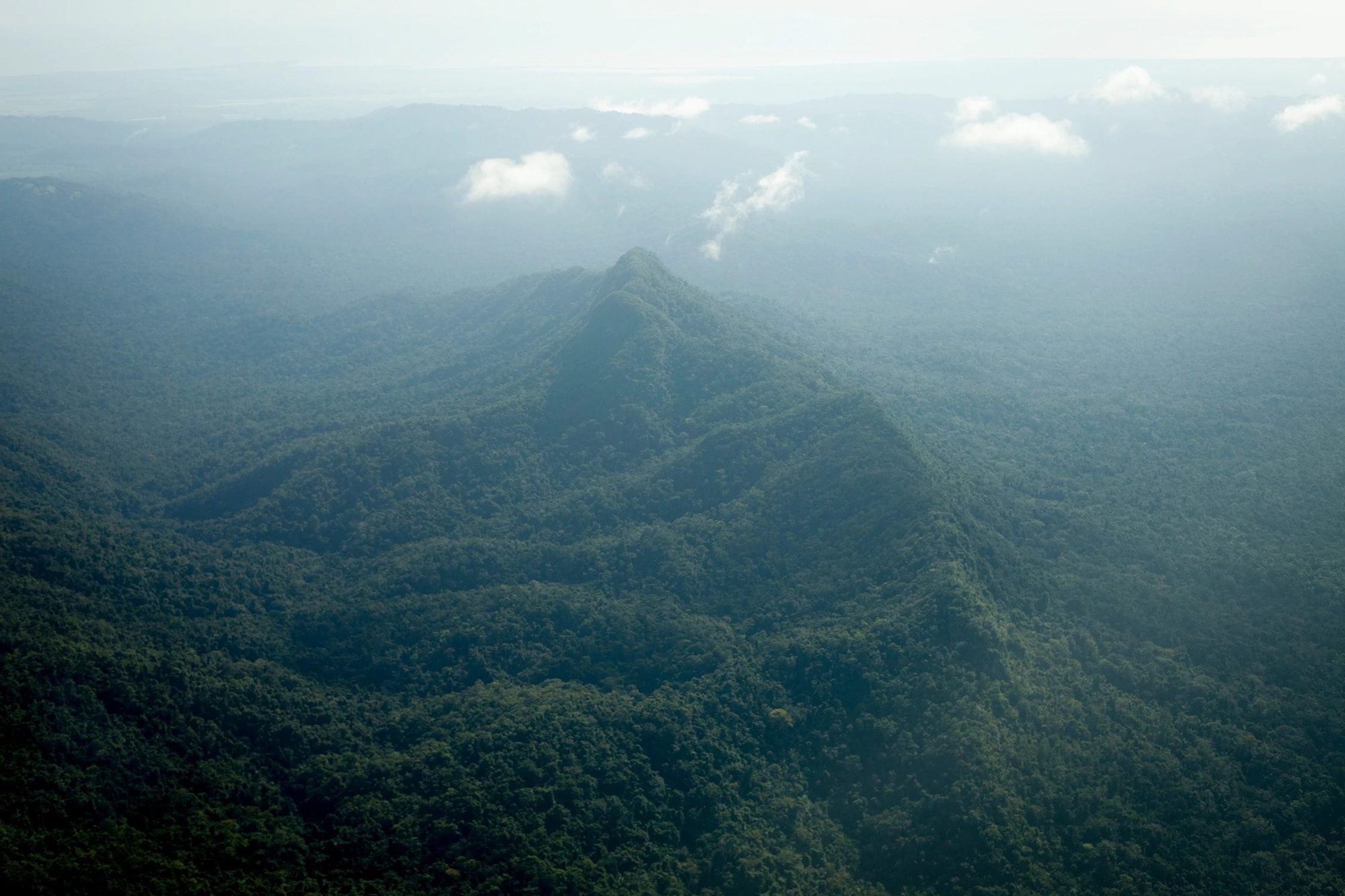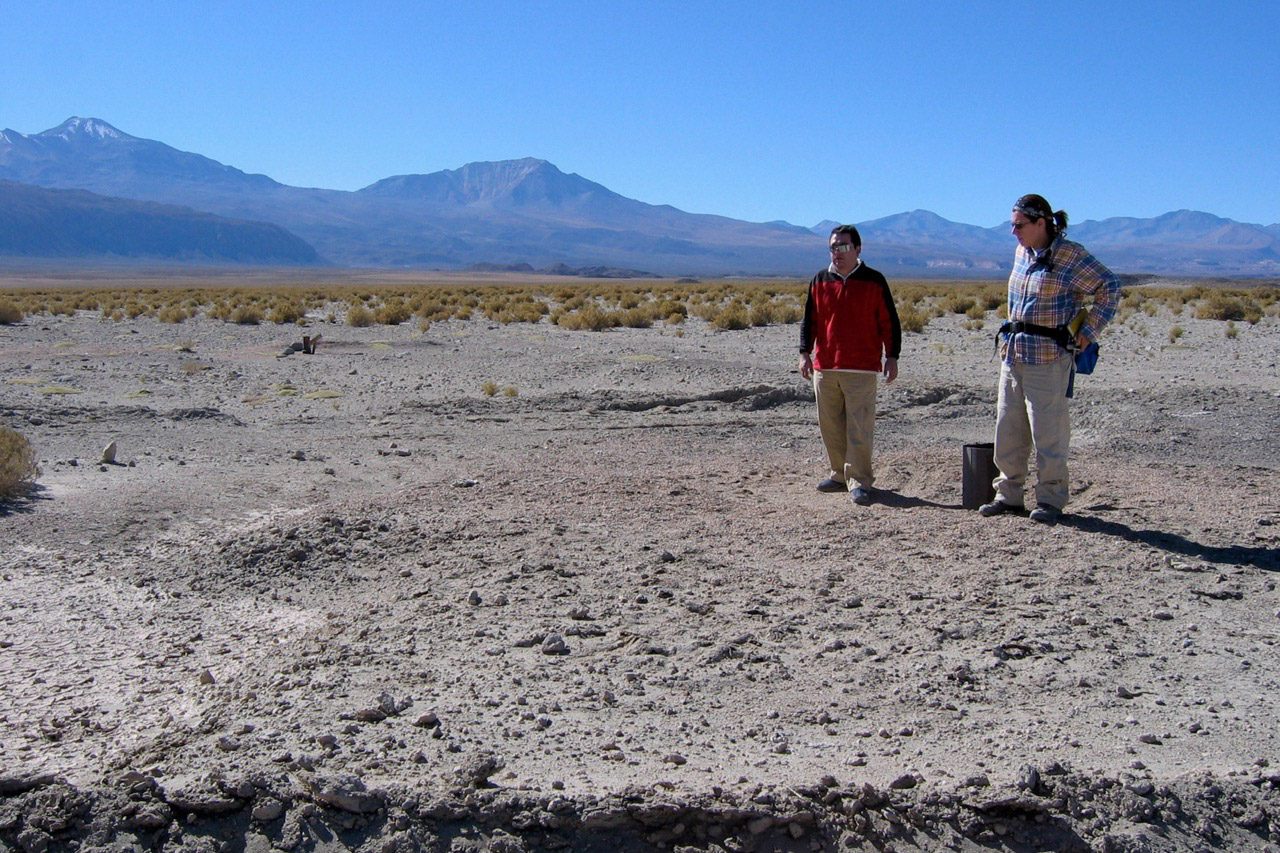Page Contents
- Major in Earth and Atmospheric Sciences
- Eligibility and Academic Standards
- Required Engineering Distributions
- Required Major Courses
- Biology Course
- Field Course
- Additional Courses
- Elective Requirements
- Concentrations
- Climate Sciences Concentration
- Environmental Science Concentration
- Geological Science Concentration
- Ocean Science Concentration
Note: This page provides a general overview. For complete and accurate information, please refer to the Engineering Undergraduate Handbook and consult with your advisor. For current course offerings and information, refer to the Cornell University Registrar: Courses of Study.
Eligibility and Academic Standards
Eligibility
Cornell Engineering undergraduates who meet eligibility requirements can affiliate with the Earth and Atmospheric Sciences major.
- At least C– in all of the following courses (if taken):
- MATH 1910
- MATH 1920
- MATH 2930
- MATH 2940
- PHYS 1112
- PHYS 1110
- PHYS 2213
- CHEM 2090
- CHEM 2080 or CHEM 1570 or PHYS 2214
- At least C- in all completed required courses
- GPA ≥2.0 in all math and science courses
- For any course that is repeated, the higher grade will be used
Preparation for affiliation should be done thoughtfully and intentionally in advance with guidance from and coordination with the student’s academic advisor.
An understanding of the Earth requires a strong grounding in math and the basic physical and biological sciences. The requirements described below are the minimum requirements for the major. Students anticipating graduate study or careers in the earth sciences are strongly urged to complete additional math and basic sciences courses relevant to their concentration.
*Students must be in good standing with their college and receive a C- or better in all prerequisite courses to be admitted to the major. Students must take all prerequisite courses for a letter grade. Students still completing the prerequisite courses can be admitted to the major provisionally.
Academic Standards
Good standing requirements for earth and atmospheric sciences:
- Minimum of 12 credits per semester completed with passing grades. No course with a grade lower than C- may be used to satisfy a prerequisite for a subsequent earth and atmospheric sciences course.
- Semester GPA > 2.3
- Cumulative GPA > 2.1
- No grade below C- in any core or concentration course required for graduation. Only one course below a C- within major required courses is allowed for graduation.
- No failing grade
Required Engineering Distributions
-
ENGRD 2XXXc
-
ENGRD 2XXX
Required Major Courses
-
EAS/ENGRD 2250
The Earth System
Biology Course
(Choose one)
-
BIOG 1140
Foundations of Biology
-
BIOG 1440
Introductory Biology: Comparative Physiology
-
BIOEE 1610
Ecology and the Environment
-
BIOEE 1780
Evolutionary Biology and Diversity
-
BIOMG 1350
Introductory Biology: Cell and Developmental Biology
-
BIOSM 1610
Ecology and the Marine Environment
-
BIOSM 1780
Evolution and Marine Diversity
Field Course
At least 3 credits
-
EAS 2500
Meteorological Observations and Instruments
-
EAS 4370
Field Geophysics
-
Courses in SEA Semester
-
Field Courses
Offered at Shoals Marine Laboratory or another college or university
Additional Courses
- One advisor-approved course in statistics, computer science, math, or natural science
- Three core courses depending on the concentration
- Three credits of independent research
Elective Requirements
-
One Major-Approved Elective
3000 level or above
-
Three Outside Major Electives
-
Two Advisor-Approved Electives
Concentrations
The concentration courses build depth and provide the student with a specific expertise in some facet of earth system science. Four concentrations are defined for the Major: Climate Sciences, Environmental Science, Geological Science, and Ocean Science. In consultation with the student’s advisor and upon approval of the curriculum committee, other concentrations may be tailored to a student’s interest. The concentration is achieved by completing five intermediate- to advanced-level courses (3000 level or above) that build on the core courses and have prerequisites in the required basic sciences and mathematics courses. See department website for current list of approved concentration courses for each concentration. Courses not on the list must be approved by the student’s advisor and Director of Undergraduate Studies. A minimum of 15 credits of concentration courses is required.
Climate Sciences Concentration
The curriculum in climate science emphasizes the scientific study of the behavior of climate and applications to the important practical problems of understanding how humans are modifying the climate system, the changing hazards caused by climate change, and the impacts of proposed mitigation efforts on the climate system.
Required Climate Sciences Concentration Courses
-
EAS 2250
The Earth System
-
EAS 3050
Climate Dynamics
-
EAS 3410
Atmospheric Thermodynamics and Hydrostatistics
-
EAS 3420
Atmospheric Dynamics
Climate Sciences Concentration Courses
-
EAS 3340
Microclimatology
-
EAS 3530
Physical Oceanography
-
EAS 4350
Statistical Methods in Meteorology and Climatology
-
EAS 4470
Physical Meteorology
-
EAS 4800 and BEE 4800
Our Changing Atmosphere: Global Change and Atmospheric Chemistry
-
EAS 3010
Evolution of the Earth System
-
EAS 3030
Biogeochemistry
-
EAS 3421
Atmospheric Dynamics: Quantitative Visualization
-
EAS 4443
Global Climate Change Science and Policy
-
EAS 4444 Climate
Smart Communities: State and Local Climate Change Science
-
EAS 5555
Numerical Techniques for Weather and Climate Modeling
-
BEE 2000
Perspectives on the Climate Change Challenge
-
BEE 4110
Hydrologic Engineering in a Changing Climate
Climate Sciences Concentration Field Course
-
EAS 2500
Meteorological Observations and Instruments
Other field options
- Field courses offered by another college or university*
- Experience gained participating in field research with Cornell faculty (or REU at another institution)*
- Three-semester credits of advisor-approved Independent Research (EAS 4910 / EAS 4920).
Independent research must conclude with formal paper describing results and conclusions or else a poster or oral presentation of results presented at a public venue.
*Field course options marked by an asterisk (*) require pre-approval by the faculty advisor and the Earth and Atmospheric Sciences Curriculum Committee. These courses/internships/REUs should require observations to be taken in the field and interpreted by the student. Field courses should generally require 40+ hours of active observation and data collection in the field. Students using a non-credit research option for the field course requirement are required to complete an additional Earth and Atmospheric Sciences concentration course.
Environmental Science Concentration
Environmental problems can involve physical, chemical, and biologic processes within the air, water, rock, and soil, and thus often require multidisciplinary solutions.
Required Environmental Science Concentration Courses — (must complete 3 of these 4)
-
EAS 3010
Evolution of the Earth System
-
EAS 3030
Biogeochemistry
-
EAS 3050
Climate Dynamics
-
EAS 3090
Earth Materials
Environmental Science Concentration Courses
-
EAS 3010
Evolution of the Earth System
-
EAS 3530
Physical Oceanography
-
EAS 3540
Ocean Satellite Remote Sensing
-
EAS 4710
Ground Water
-
EAS 4190
Geofluids
-
EAS
Hydrogeophysics
-
EAS 4740
Quantitative Data Analysis for the Geosciences
-
EAS 4870
Introduction to Radar Remote Sensing
-
PLSCS/CEE 4110
Applied Remote Sensing and GIS for Resource Inventory and Analysis
-
PLSCS 3650
Environmental Chemistry
-
BEE 4270
Water Measurement and Analysis Methods
-
BEE 4730
Watershed Engineering
-
BEE 4750
Environmental Systems Analysis
Environmental Science Concentration Field Courses
-
EAS 4370
Field Geophysics
Other field options:
- Field courses offered by another college or university*
- Experience gained participating in field research with Cornell faculty (or REU at another institution)*
- Three-semester credits of advisor-approved Independent Research (EAS 4910 / EAS 4920).
Independent research must conclude with formal paper describing results and conclusions or else a poster or oral presentation of results presented at a public venue.
*Field course options marked by an asterisk (*) require pre-approval by the faculty advisor and the EAS Curriculum Committee. These courses/internships/REUs should require observations to be taken in the field and interpreted by the student. Field courses should generally require 40+ hours of active observation and data collection in the field. Students using a non-credit research option for the field course requirement are required to complete an additional EAS concentration course.
Geological Science Concentration
Geological Science studies processes involved in Earth’s origin and evolution, its relationship with the solar system, and its structure and composition. Geological science is also interconnected to society’s needs, including the responsible use of natural resources, preserving the environment, and studying and mitigating natural hazards (earthquakes, volcanic eruptions, landslides, etc.).
Required Geological Science Concentration Core Courses
-
EAS 2250
The Earth System
-
EAS 3090
Earth Materials
-
EAS 3880
Global Geophysics
-
EAS 3010
Evolution of the Earth System
Geological Science Concentration Courses
-
EAS 4010
Fundamentals of Energy and Mineral Resources
-
EAS 4040
Geodynamics
-
EAS 4050 or EAS 4260
Active Tectonics or Structural Geology
-
EAS 4340
Environmental Geophysics
-
EAS 4540
Petrology and Geochemistry
-
EAS 4550
Geochemistry
-
EAS 4561
Isotope Geochemistry
-
EAS 4740
Quantitative Data Analysis for the Geosciences
-
EAS 4760
Sedimentary Basins
-
EAS 4780
Stratigraphy
-
EAS 4790
Paleobiology
-
EAS 4820
Seismology
-
EAS 4840
Inverse Methods in the Natural Sciences
-
EAS 4580
Volcanology
-
EAS 5770
Planetary Surface Processes
-
EAS 5780
Planet Formation and Evolution
Geological Science Concentration Field Courses
-
EAS 4370
Field Geophysics
Ocean Science Concentration
The field of ocean science encompasses four subdisciplines covering marine geology, marine chemistry, physical oceanography, and biological oceanography. There is a strong interdisciplinary overlap among all four of these sub-disciplines. A concentration in ocean sciences touches on all four subdisciplines but is often tailored to emphasize one of the sub-disciplines over the other three.
Required Ocean Science Concentration Courses
-
EAS 2250
The Earth System
-
EAS 3050
Climate Dynamics
-
EAS 3530
Physical Oceanography
-
EAS 3030
Biogeochemistry
Ocean Science Concentration Courses
-
BIOEE 4570
Limnology: Ecology of Lakes, Lectures
-
BIOEE 4571
Limnology: Ecology of Lakes, Laboratory
-
BIOEE 4780
Ecosystem Biology and Global Change
-
BIOEE 4920
Special Topics in Ocean Biodiversity: Ocean Biodiversity Research Apprenticeship
-
BIOEE 4930
Marine Invertebrate Biodiversity
-
BIOEE 6680
Principles of Biogeochemistry
-
BIOSM 3650
Underwater Research
-
EAS 3420
Atmospheric Dynamics
-
EAS 3530
Physical Oceanography
-
EAS 3540
Ocean Satellite Remote Sensing
-
AS 3555 and BIOMI 3500
Biological Oceanography and Ocean Biogeochemistry
-
EAS 4620 and BIOEE 4620
Marine Ecosystem Sustainability
-
EAS 4720 and BIOEE 3500
Dynamics of Marine Ecosystems in a Changing Ocean
-
EAS 4750
Special Topics in Oceanography
-
EAS 5050
Fluid Dynamics in the Earth Sciences
-
SEA 3665
The Ocean and Global Change
-
SEA 3780
Oceans in the Global Carbon Cycle
-
SEA 3800
Advanced Oceanographic Field Methods
-
SEA 4640
Advanced Topics in Biological Oceanography
-
BIOSM 3210 or BIOSM 3830
Anatomy and Function of Marine Vertebrates or Field Marine Invertebrate Biology
Ocean Science Concentration Field Courses
Students can choose from the following course options.
Students must complete five concentration courses at the 3000-level or above. Students should speak with their advisor about which concentration courses are most appropriate for their program of study.
Field Courses
Exposure to the basic observations of earth science in the field is necessary to fully understand the chosen area of concentration in the major. A minimum of three credits of appropriate coursework is required, although more experience with fieldwork is encouraged.
Other Field Options
- Field courses offered by another college or university*
- Experience gained participating in field research with Cornell faculty (or REU at another institution)*
- Three-semester credits of advisor-approved Independent Research (EAS 4910 / EAS 4920).
Independent research must conclude with formal paper describing results and conclusions or else a poster or oral presentation of results presented at a public venue.
*Field course options require pre-approval by the faculty advisor and the department Curriculum Committee. These courses/internships/REUs should require observations to be taken in the field and interpreted by the student. Field courses should generally require 40+ hours of active observation and data collection in the field. Students using a non-credit research option for the field course requirement are required to complete an additional 3+ credits of department concentration courses. Students doing three credits of independent research must give a public (oral or poster) presentation of their results.



